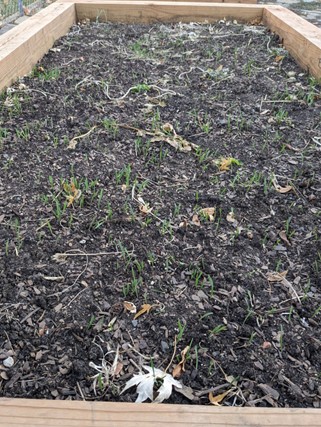Cultivating Resilience: Transforming Our Soil from Dirt to Gold

The Foundation of a Thriving Ecosystem
At the heart of every flourishing ecosystem lies the often-underappreciated foundation—healthy soil. Healthy soil isn’t just a medium for plants to grow in. It is a dynamic and interconnected system that influences water quality, biodiversity, and even climate stability. To help keep water clean, healthy soil acts as a natural filter, preventing pollutants from entering water bodies. Soil is important for biological diversity (or biodiversity) to grow plants, which are the basis of the food chain that sustains animals and humans. Soil plays a multifaceted and crucial role in reducing climate change, too.
Through a process known as carbon sequestration, healthy soils act as a natural carbon “sink” and absorb and store carbon dioxide (CO2) from the atmosphere. This is very important because carbon dioxide is the most abundant greenhouse gas responsible for our warming climate. Soil also helps to curb climate emissions by supporting vegetation that captures carbon dioxide during photosynthesis, and, through a series of processes, transfers some of this carbon into the soil as organic matter. This organic matter becomes part of the soil's composition. This soil organic carbon serves as a stable and long-term storage for carbon, preventing it from returning to the atmosphere as carbon dioxide.
Ramsey County Soil Health Program: Sowing the Seeds of Change
The Ramsey County Soil Health program, in collaboration with Ramsey County Master Gardeners, embarked on a transformative journey, starting with a pioneering project that utilized cereal rye as a cover crop. Cover crops play a multifaceted role in soil health by reducing erosion, compaction, and weeds while increasing organic matter. In the pilot program, 18 participants planted cereal rye in urban garden plots, achieving an encouraging 45% germination rate. This first year serves as a learning experience, providing valuable insights to refine and expand the program's impact in subsequent years. The Ramsey County Soil Health program is partially funded through a Soil Health grant from the Board of Water & Soil Resources.